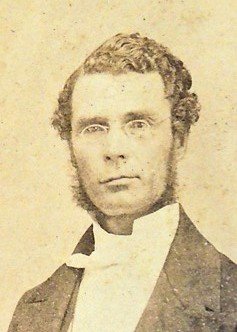One of Jamaica’s National Heroes, George William Gordon was born to a slave mother and a planter father who was an attorney to several sugar estates in Jamaica. Seeing that his son George had special characteristics, Joseph Gordon decided to take an interest in his education from an early age. George went to live with his godfather, James Daly, in Black River and there completed his education. Gordon was mostly self-educated.

George was a businessman and landowner in the parish of St. Thomas. In the face of attempts to crush the spirit of the freed people of Jamaica and again reduce them to slavery, Gordon entered politics. He faced severe odds, as the people whose interests he sought to serve did not qualify to vote.
In 1843, at the age of 23, Gordon was elected to the House of Assembly for St. Thomas but his public life began about 1844. He entered politics as an advocate for the poverty-stricken Negro peasants. In 1865, when the economic condition of Jamaica was at a new low, Gordon spoke openly on behalf of the poor Negroes and with bitter criticism of Lieutenant Governor Edward Eyre.
He subdivided his own lands, selling farm lots to the people as cheaply as possible, and organised a marketing system, through which they could sell their produce at fair prices.
Gordon urged the people to protest against and resist the oppressive and unjust conditions under which they were forced to live.
During this period of oppression on the part of the Black people, Paul Bogle was very active in revolting against the system of government. On 11 October Bogle with about 400 men, marched in Morant Bay where the Town Council was in session. There they raided a police station for arms and set the Court House on fire. The Custos, Baron von Ketelhodt, along with fifteen vestrymen was killed. It was from this incident that a warrant was sent out for Gordon’s arrest.
Despite having no direct involvement, Gordon was arrested and charged for complicity in what is now called the Morant Bay Rebellion in 1865. He was illegally tried by Court Martial and, despite the lack of evidence, convicted and sentenced to death. He was executed on 23 October 1865.






Leave a Reply